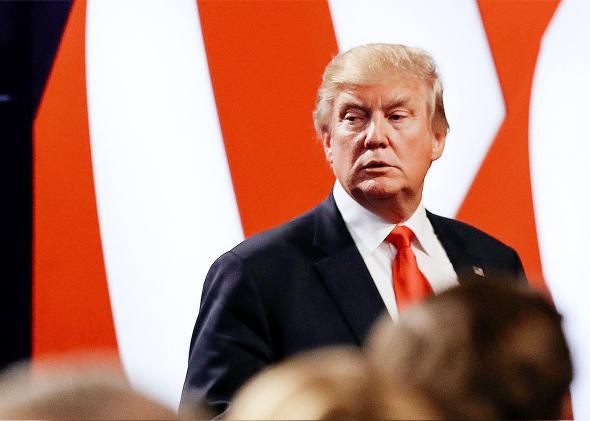Donald Trump, we know well by now, will never admit to any fault. But it was still stunning Wednesday night when, once again, the Republican presidential candidate tried to pin the matter of the taxes he has not paid on Hillary Clinton.
In early October, the New York Times revealed that Trump claimed an amazing $916 million tax loss in 1995, one that likely allowed him to avoid paying federal personal taxes for almost two decades. In both Wednesday night’s presidential debate as well as the town hall–style one held earlier this month, Trump blamed Clinton for the fact that he took advantage of the tax code to ether his tax burden. Here’s how he started on Wednesday:
We’re entitled [to large tax breaks] because of the laws that people like her passed to take massive amounts of depreciation and other charges, and we do it. And all of her donors, just about all of them, I know Buffett took hundreds of millions of dollars, Soros, George Soros took hundreds of millions of dollars.*
A moment later, he concluded: “If you don’t like what I did, you should’ve changed the laws.”
Translation: Everyone does it! So why not me? Also, it’s your fault.
The law that Trump is probably discussing—it’s not, after all, ever fully clear what he’s discussing—came about in 1993, during the presidency of Bill Clinton. That year, real estate “professionals”—that is, businesspeople who worked on their real estate interests at least 750 hours a year (or a little more than 14 hours a week)—received the ability to write off their losses against their personal earnings.
First, no: Not everyone does it. After Trump made a similar assertion about billionaire Democratic donors during the second presidential debate, Warren Buffett stepped forward to say that he has never carried forward a loss like Trump did.*
Moreover, Hillary Clinton wasn’t in any position to do anything about the legislation signed by Bill Clinton. She was first lady in 1993, the same position she held in 1995, the year we know Trump took advantage of the break. But Trump’s complaint appears to be that she didn’t single-handedly repeal the law after she was elected to the U.S. Senate in 2000—five years after he employed the strategy. She couldn’t single-handedly change the law. And as we should all recall, Clinton did vote—unsuccessfully—in 2001 and 2003 against the income-tax cuts successfully pushed by the George W. Bush administration, cuts that disproportionately benefited high earners.
And what about now? Clinton is now advocating a plan that would limit developers taking advantage of something called like-kind exchanges—that’s when they avoid paying taxes on profits by taking the money and buying another property—to $1 million a year.
As for Trump, who conveniently didn’t say whether he thinks his income tax avoidance was a problem, even though he’s criticized much less fortunate Americans for doing the same: His tax plan, according to many analysts, would actually increase the tax breaks available to real estate honchos like himself. Deplorable.
*Correction, Oct. 20, 2016: This post originally misspelled Warren Buffett’s last name. It also misquoted Trump as saying “all of her donors” took large tax breaks. He was referring to Hillary Clinton’s donors.
